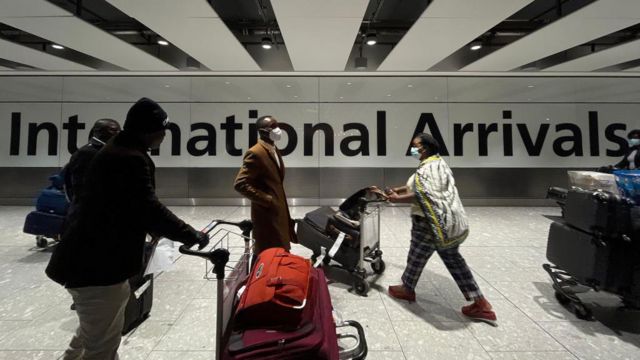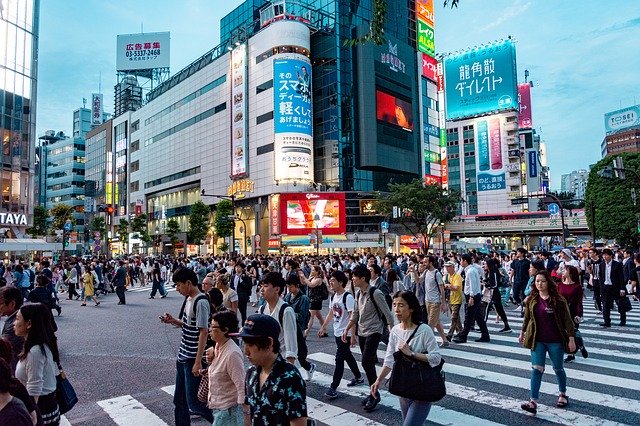Introduction

Ever heard someone yell, “I just wan Japa!”? If you’re Nigerian or you’ve got Nigerian friends, chances are you’ve come across the term. But what exactly is fueling this rising tide of youth migration — and how does it tie into the growing migration crisis in Nigeria?
Let’s take a walk through the lives, thoughts, and real-life decisions behind Nigeria’s “Japa” wave — a movement where thousands of young people are packing their bags (and dreams) to start anew abroad. The reasons go beyond just travel. It’s about survival, dignity, and a future that feels more certain.
What Does “Japa” Really Mean?
“Japa” is Yoruba slang that literally means “to run swiftly away” or “escape.” It’s become the go-to expression for young Nigerians fleeing the country in search of greener pastures.
Today, it’s not just a word. It’s a lifestyle, a mindset, and sadly, a reflection of a national crisis. Whether it’s for education, career, or simply peace of mind, Japa has become the anthem of a generation.
The Evolution of the Japa Trend

Migration isn’t new. Nigerians have been leaving the country for decades. But here’s the twist: the scale, age group, and motivation have changed. What used to be a quiet move for academics or elites is now a youth-led exodus, loud on social media and backed by clear intent.
In the past, people left for master’s degrees or jobs. Now, people Japa with student visas, work permits, or even asylum claims — whatever gets them out.
Why Are Young Nigerians Leaving?

It’s not about being unpatriotic.
Let’s be clear: most people don’t just wake up and decide to leave home for fun. It’s a series of hard decisions, often fueled by frustration, fear, and failure of governance.
Here are some of the biggest reasons:
The Education Escape
Ever tried applying to a public university in Nigeria? Between endless strikes and broken promises, the Nigerian education system often feels like a gamble.
Students who should be graduating in 4 years now spend 6-7 years in school due to frequent ASUU strikes. No wonder many are turning to schools in Canada, the UK, and Australia. They want certainty — and quality.
Brain Drain and the Search for Better Opportunities
Imagine being a medical doctor who earns less than $300 a month. That’s the painful reality for many professionals in Nigeria. And so they leave — not because they hate Nigeria, but because they love themselves.
This brain drain hits hard: teachers, engineers, nurses, tech experts — all shipping out. And when they arrive in countries that value their skills, they thrive.
Economic Hardship: A Push Factor
Let’s talk naira. Between inflation, unemployment, and unstable exchange rates, the Nigerian economy isn’t doing most people any favors.
Young people, especially, are tired of hustling without hope. You hear stories like, “After 5 years of school, I’m still selling data and recharging phones to survive.”
When foreign countries offer even minimum wage jobs with dignity, it becomes too tempting to ignore.
Insecurity and the Quest for Safety
From bandit attacks to police brutality, insecurity is another major push factor. After the #EndSARS protests in 2020, many young Nigerians felt targeted for simply existing.
Daily news of kidnappings, armed robbery, and violence has created a sense of fear and urgency. For many, Japa means peace — literally.
Political Frustration and Lost Hope
It’s one thing to be poor, but it’s worse when you feel powerless to change it. Many Nigerian youths have lost faith in the system.
They vote, they protest, they hope — yet, the cycle continues. Corruption, recycled politicians, and poor governance have pushed many over the edge.
They no longer want to fix Nigeria. They just want to escape it.
The Role of Social Media in the Japa Wave
Instagram, TikTok, YouTube — they’re not just for dancing videos. These platforms now serve as digital migration diaries.
People post “Japa journeys,” visa application hacks, flight updates, and “Welcome to Canada” videos. The impact? More people see it as achievable — and it fuels the visibility and momentum behind the growing migration crisis in Nigeria.
Before, migration felt like a dream. Now, it feels like a plan.
Countries Young Nigerians Are Heading To
Some of the hottest Japa destinations include:
- Canada – Welcoming immigration policies and PR pathways.
- United Kingdom – Popular for studies and work permits.
- Australia – Skilled migration programs.
- Germany – Free tuition and job opportunities.
- United States – Still a dream for many, despite tough visa hurdles.
Each country offers what Nigeria seems to lack: stability, safety, and structure.
The Cost and Process of Japa

Leaving isn’t cheap. From application fees to visa processing and flight tickets, the Japa journey can cost anywhere from ₦2 million to ₦10 million and beyond — a financial burden that reflects just how deep the migration crisis in Nigeria has become.
Many go into debt, sell property, or crowdsource funds just to make it happen. But ask them if it’s worth it? Most will say yes — even if they’re washing dishes abroad.
Stories From the Japa Frontline
“I sold my car and borrowed from friends just to relocate,” says Ada, now living in Ontario. “Life here isn’t perfect, but at least I can plan.” Her story is just one of many personal sacrifices behind the migration crisis in Nigeria, where desperation meets determination.
Then there’s Seyi, a nurse now working in the UK: “In Nigeria, I had no dignity. Here, I feel human again.”
Each story is different, but the theme is the same: freedom, dignity, and a chance at a better life.
The Impact of Japa on Families and Society
While the Japa wave brings relief to individuals, it also creates emotional and structural gaps back home.
- Parents miss their children.
- Workplaces lose top talent.
- Communities feel emptier.
The emotional toll is real, especially for families torn apart. At the same time, remittances from abroad now play a huge role in sustaining local economies.
What Does This Mean for Nigeria’s Future?
Let’s face it — Nigeria is bleeding talent. While the diaspora contributes in remittances, the country is losing future leaders, thinkers, and innovators.
If the root causes aren’t addressed — poor governance, insecurity, lack of jobs — the cycle will only get worse. Reversing brain drain requires serious investment in people and systems.
Should Everyone Japa?
No, not everyone must Japa. Some people are thriving in Nigeria. Some are building businesses, creating jobs, and leading change.
But for those who choose to leave, it’s a personal decision. And it’s one that deserves understanding, not judgment.
Conclusion
The Japa wave isn’t just about migration. It’s a loud cry for better — better jobs, better security, better governance. Young Nigerians aren’t running because they hate their country. They’re running because they want more from life.
Whether you stay or go, one thing’s clear: this generation refuses to settle. And maybe, just maybe, that’s the beginning of real change.
FAQs
1. What is the meaning of “Japa” in Nigeria?
“Japa” is Yoruba slang for “to flee” or “escape.” It now refers to Nigerians, especially youths, migrating abroad.
2. Which countries are popular for Nigerian migrants?
Top destinations include Canada, the UK, the US, Australia, and Germany.
3. Is Japa legal or illegal migration?
Japa typically refers to legal migration — through student visas, work permits, or permanent residency applications.
4. Why are young Nigerians leaving in droves?
Reasons include poor economy, insecurity, lack of jobs, political frustration, and failing education systems.
5. Can Nigeria benefit from the Japa wave?
Yes. While there are losses, diaspora remittances and eventual returnees with new skills can benefit the country — if harnessed properly.
The Male Beauty Standards Nobody Talks About: Are Men the Silent Victims?


